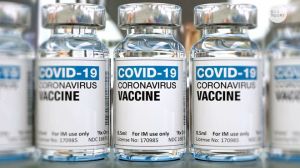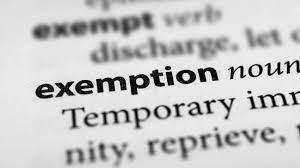
On December 16, 2020 The Equal Employment Opportunity Commission (the federal agency in charge of enforcing laws prohibiting discrimination in the workplace) said that employers can require employees to get vaccinated before entering the workplace. Two Covid-19 vaccines have received emergency use authorization in the US, and this is causing some people concern that they could be fired if they don’t want to take the vaccine.
Here are some Q & A’s to help explain the issues in more detail.
1. Can employers require employees to get a vaccine?
The general answer is yes—with few exceptions.
Under US law, private employers can define general working conditions, including the adoption of safety and health within the workspace. Requiring employees to get vaccinated against diseases that could compromise health and safety in the workplace is viewed as part of that ability.

2. Does the new rule apply to Covid-19 vaccines?
Earlier in the pandemic, there were doubts about whether the general rule would apply to Covid-19 vaccines. This was mainly because the first vaccines that became available in the US had not been fully approved by the FDA. They have since received an emergency use authorization - temporary permission to commercialize the vaccines because of the public health crisis the US is facing. This is the first emergency use authorization that has ever been granted to a new vaccine. That question was addressed when the Equal Employment Opportunity Commission issued guidelines that said employers have the right to impose a mandatory Covid-19 vaccination policy.
From a legal perspective, this view is based on the fact that the law allows employers to impose requirements on employers to ensure that they do not pose threats to the “health or safety of other individuals in the workplace.” The EEOC treated emergency use vaccines as part of the sets of measures that employers can mandate to accomplish this goal.
This means that the general rule applies and employers should be able to require that employees get vaccinated against Covid-19, within certain limits. These limits, which include the exceptions below, are the same as the general exemptions applicable to any employer-mandated vaccination.
3. Are there religious and / or disability-related exemptions?
Vaccine refusal cannot be a personal or a politically motivated belief. However, title VII of the Civil Rights Act states that if an employee has a sincerely held religious belief incompatible with vaccination, the employer cannot require that employee to be vaccinated. Traditionally, the EEOC interprets the concept of “religious belief” very generally.
An employer must try to reasonably accommodate the employee if they qualify for a religious exemption. An example of how an employer could provide this accommodation would be for the employer to have the employee switch from in-person to remote work while Covid-19 still poses risks to public health.
Please note that the employer does not have to grant an accommodation if doing so would result in “undue hardship.” Standard cases of undue hardship include situations where the accommodation would compromise the safety and health of other employees or if applying the accommodation is too costly or logistically burdensome.
As far as disabilities go, these rights are similar to the one described above. Under the Americans with Disabilities Act, if an employee has a disability and cannot safely receive a vaccine, that employee qualifies for an exemption and the employer must provide reasonable accommodations. This act also states that employers do not have to provide an accommodation that would result in undue hardship.
The technical question here was whether employers could impose Covid-19 vaccination because the Americans with Disabilities Act severely limits the ability of employers to require medical examinations. In its December 16th guidance, the EEOC clearly states that Covid-19 vaccines do not fall in the “medical examination” category.
This means that requiring employee vaccination does not violate federal disability law.
4. What happens if my employer cannot provide an accomm odation?
odation?
If an employee does not qualify for either a disability-related or religious exemption and the employer is unable to provide an accommodation because of undue hardship, then the employer has the right to exclude the employee from going to the workplace.
There is a very broad set of rights that the law gives employers in order to promote safety and health. In many some cases it is possible for an organization to go even further and terminate employment if a worker refuses vaccination and there is no reasonable way to provide an accommodation. Here is a great example. Let’s say there is no reasonable accommodation that an employer can provide a barista that would allow him to continue make lattes at the coffee shop where she works, this employer may be able to terminate his employment.
It is important to note that the EEOC guidelines explicitly say that the inability to reasonably accommodate an employee does not automatically give the employer the right to fire him or her. In our example, in order to find out whether the coffee shop could terminate this unvaccinated barista would depend on a variety of factors - including union agreements, state laws and any other potentially applicable requirements at the federal level.
At Jones Law Firm we understand that this past year and what is still to come with the pandemic has brought to light many new situations. We are committed to being there to guide you through the new legal issues that have and are yet to come. Please contact us by text or phone at (414) 774-6000 or email at laura@jlfwisconsin.com anytime for your free consultation.
*Any articles in the Libra or posted by Jones Law Firm LLC are not legal advice for a particular client or situation. Further no attorney-client relationship is intended or created with this post.*

